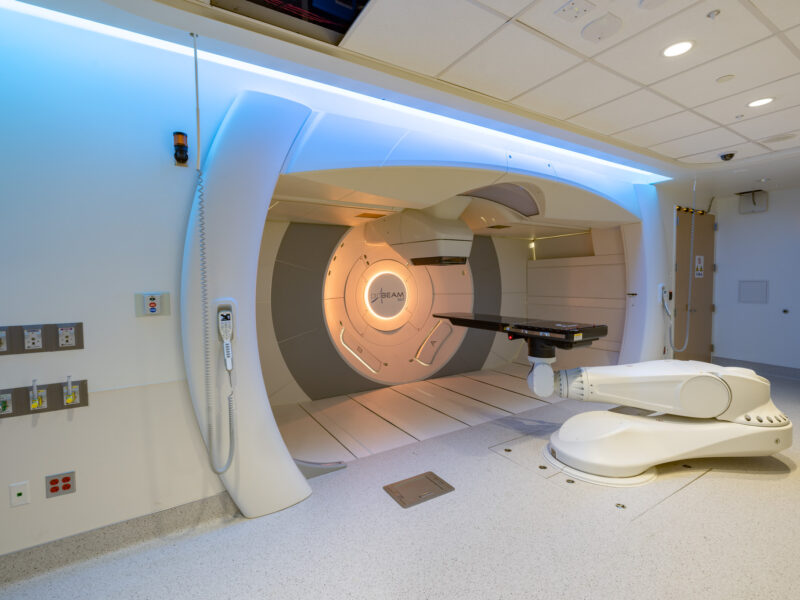What Drives Nephrotic Syndrome Hypercoagulopathy?
What Drives Nephrotic Syndrome Hypercoagulopathy? https://pediatricsnationwide.org/wp-content/themes/corpus/images/empty/thumbnail.jpg 150 150 Mary Bates, PhD Mary Bates, PhD https://secure.gravatar.com/avatar/c6233ca2b7754ab7c4c820e14eb518c8?s=96&d=mm&r=g- June 23, 2023
- Mary Bates, PhD
Antithrombin deficiency does not play a major mechanistic role in the increased clotting risk of nephrotic syndrome, according to a new study.
Patients with nephrotic syndrome are at risk for life-threatening venous thromboembolism complications. This risk is thought to be driven by an acquired hypercoagulopathy, or excessive blood clotting. Although the mechanisms underlying this hypercoagulopathy are not well understood, the most commonly accepted hypothesis is that urinary loss of the protein antithrombin results in antithrombin deficiency in the blood, leading to clots. However, there are conflicting data linking antithrombin deficiency to hypercoagulopathy in nephrotic syndrome.
In a new study, researchers from Nationwide Children’s evaluated the relationships between antithrombin deficiency and nephrotic syndrome hypercoagulopathy in samples from more than 200 pediatric and adult patients in three independent nephrotic syndrome cohorts: the Nephrotic Syndrome Study Network (NEPTUNE), the Pediatric Nephrology Research Consortium (PNRC), and a local cohort consisting of patients enrolled by Nationwide Children’s and Ohio State University investigators. The researchers also performed meta-analyses by combining these new data with previously published data to determine the prevalence of antithrombin deficiency in patients with nephrotic syndrome.
In contrast to the prevailing hypothesis, the researchers found that antithrombin levels were unrelated to protein loss in the urine. Their analyses showed that antithrombin antigen levels were associated with hypercoagulopathy in adult nephrotic syndrome. However, the relationship between antithrombin and hypercoagulopathy was inconsistent in childhood nephrotic syndrome.
Ex-vivo spiking experiments showed that supplementation with antithrombin did not alter hypercoagulopathy in antithrombin-deficient plasma samples. Moreover, the meta-analysis showed that antithrombin deficiency was not a uniform feature of nephrotic syndrome, though it was more common in children than in adults.
“Together, the results suggest that antithrombin deficiency is not the main mechanism of increased clotting risk in nephrotic syndrome patients,” says Eman Abdelghani, MD, a Pediatric Hemostasis-Thrombosis Fellow at Nationwide Children’s and lead author of the study.
The findings have implications for patient care, according to senior author Bryce Kerlin, MD, a pediatric hematologist and principal investigator in the Center for Clinical and Translational Research in the Abigail Wexner Research Institute at Nationwide Children’s.
“There is discussion in the thrombosis clinical practice guidelines of whether to give supplemental antithrombin to patients with nephrotic syndrome to correct their antithrombin levels,” he says. “But these data strongly suggest that supplementing antithrombin in this disease is not going to help.”
Dr. Abdelghani says that with the prevailing hypothesis unsupported, researchers should focus on examining other potential mechanisms that may better explain the increased clotting risk in patients with nephrotic syndrome.
“Although patients with nephrotic syndrome are at increased risk for blood clots, there is no consensus on when to put them on preventive blood thinners,” she says. “I think understanding the mechanism will help clinicians determine which patient population is at highest risk of experiencing a blood clot and which patients would benefit from a preventive blood thinner.”
Reference:
Abdelghani E, Waller AP, Wolfgang KJ, Stanek JR, Parikh SV, Rovin BH, Smoyer WE, Kerlin BA; the PNRC Investigators,; the NEPTUNE Investigators. Exploring the Role of Antithrombin in Nephrotic Syndrome-Associated Hypercoagulopathy: A Multi-Cohort Study and Meta-Analysis. Clin J Am Soc Nephrol. 2023 Feb 1;18(2):234-244.
About the author
Mary a freelance science writer and blogger based in Boston. Her favorite topics include biology, psychology, neuroscience, ecology, and animal behavior. She has a BA in Biology-Psychology with a minor in English from Skidmore College in Saratoga Springs, NY, and a PhD from Brown University, where she researched bat echolocation and bullfrog chorusing.
-
Mary Bates, PhDhttps://pediatricsnationwide.org/author/mary-bates-phd/December 27, 2016
-
Mary Bates, PhDhttps://pediatricsnationwide.org/author/mary-bates-phd/
-
Mary Bates, PhDhttps://pediatricsnationwide.org/author/mary-bates-phd/
-
Mary Bates, PhDhttps://pediatricsnationwide.org/author/mary-bates-phd/
- Posted In:
- Uncategorized






